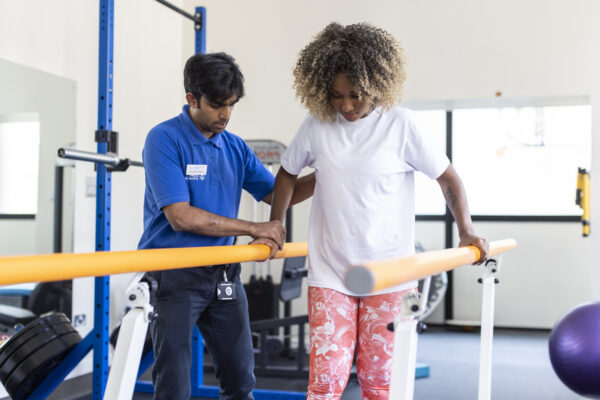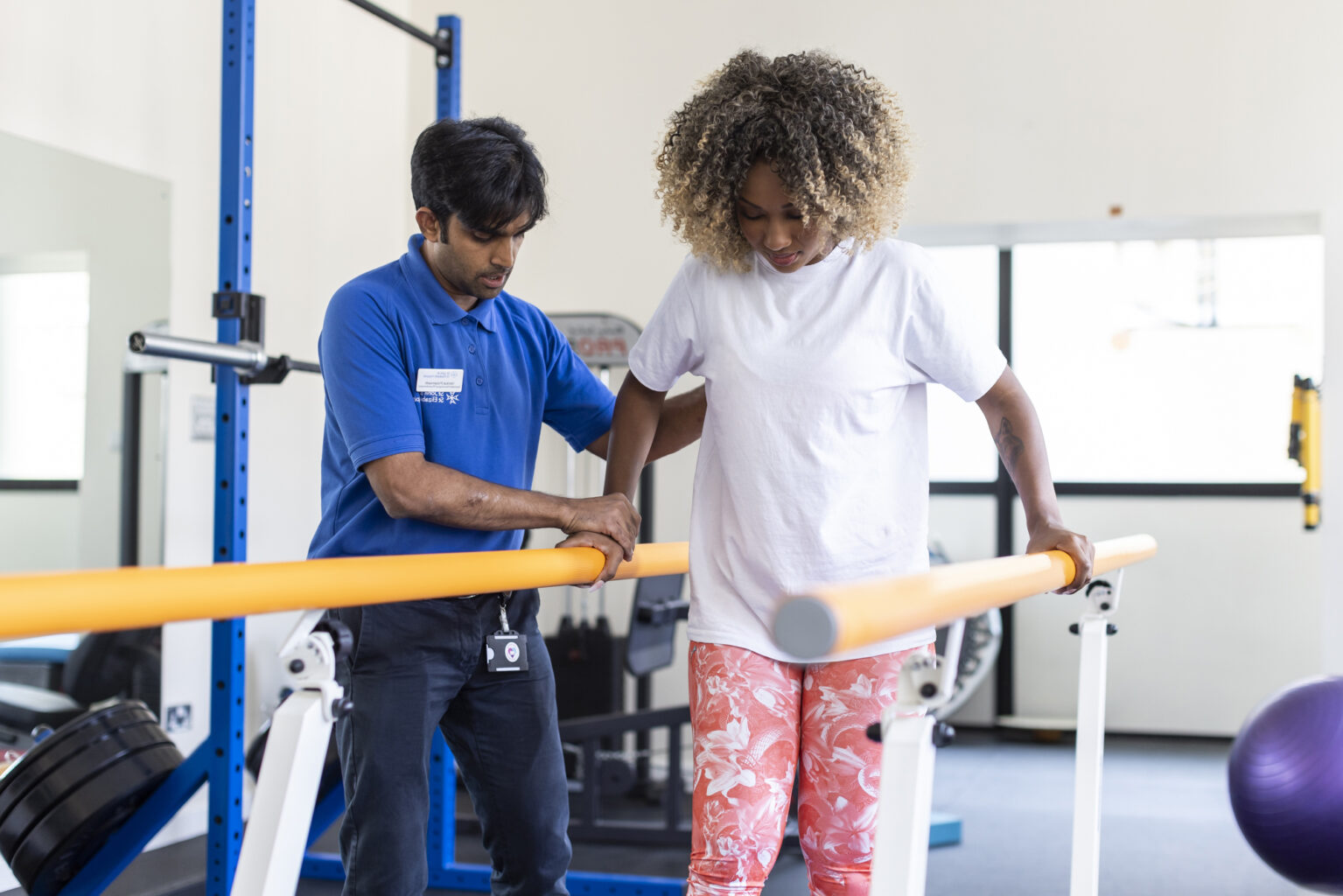Contact number: 020 7806 4060
What is Hip Arthroscopy?
Hip arthroscopy involves using a small camera, called an arthroscope, to examine and treat issues within the hip joint. The procedure is performed through small incisions, minimising tissue damage and promoting faster recovery compared to traditional surgery.
Conditions treated with hip arthroscopy include:
- Labral tears
- Hip impingement (femoroacetabular impingement)
- Cartilage damage
- Loose bodies in the joint
- Inflammation of the joint lining (synovitis)
This procedure is often recommended for patients who experience persistent hip pain or restricted movement that has not improved with non-surgical treatments.
Hip Arthroscopy at St John & St Elizabeth Hospital
At St John & St Elizabeth Hospital, we provide expert hip arthroscopy as part of our comprehensive orthopaedic services. Our consultants use advanced techniques and modern facilities to deliver effective, patient-focused care.
Why choose us for hip arthroscopy?
- Specialist Surgeons: Our consultants are highly experienced in performing arthroscopic hip procedures.
- Minimally Invasive Approach: Small incisions and precise techniques reduce recovery time and post-operative discomfort.
- Modern Facilities: Our hospital is equipped with state-of-the-art imaging and surgical equipment to support high-quality care.
- Accessible Location: Conveniently based in NW8, we serve patients from Hampstead (NW3), Kilburn (NW6), and the wider London area.
We are dedicated to helping you find relief from hip pain and improve your quality of life through expert care and a tailored treatment plan.
Consultants who perform Hip Arthroscopy Surgery in London
How Much Does A Private Hip Arthroscopy Surgery Cost?
from £2,310*
The cost of a private hip arthroscopy starts from £2,310* at St John & St Elizabeth Hospital.
*The price shown is an estimated guide to the hospital charges associated with your treatment from admission to discharge. Your final cost may vary depending on your individual clinical needs, the procedure performed, any additional treatments required, the type of implant/prosthesis used (where applicable), and the length of stay. This guide price excludes consultation fees, diagnostic tests, and professional fees charged separately by your surgeon, anaesthetist, and any other specialists involved in your care.
How to pay for your treatment
If you’re… paying for yourself
Did you know you don’t need private medical insurance to come to St John & St Elizabeth Hospital? As a self-pay patient, you can access safe, outstanding quality health care at times to suit you.
For scans and tests, as well as to see most consultants, you’ll still need to be referred by a medical professional like your GP, but as a self-pay patient, the process is more straightforward. You won’t need authorisation from an insurance provider, and you’ll have greater choice of consultant and appointment times.
If you’re… insured
St John & St Elizabeth Hospital is approved by all major medical insurance companies. If you have a personal private health insurance policy, or your company provide it for you, you can use it to pay for your care from your initial consultation through to treatment, surgery and aftercare such as physiotherapy. Not all private health insurance plans cover the same things. It’s very important to check exactly what you are covered for with your insurance provider.
Appointment
You will have an initial consultation with a lower limb orthopaedic surgeon.
Treatment plan
During this appointment, you’ll go through your medical history, the risk and benefits of an arthroscopy and what to expect from recovery. Together, you will decide whether this procedure is the best option for you.
Pre-op assessment
If you decide to go ahead with the procedure, you will need to come in for a pre-assessment, which is a standard ‘fitness for surgery’ check.
Surgery
The procedure itself should take around 90 minutes. You will be able to go home the same day. However, you will need to be collected from hospital as you are not allowed to drive after sedation.
Aftercare
You will need to keep your wounds clean and dry, take pain relief and have physiotherapy consistently. You will not be able to fly short haul for six weeks or long haul for 12 weeks. We have an excellent therapies team at our hospital that can support you throughout your recovery.
Follow-Up
You will have a follow-up appointment with your doctor at two weeks, where stitches will be removed. You should also have follow-ups at 6 weeks, 3 months, and if needed, at 6 months.
Frequently Asked Questions About Hip Arthroscopy
St John & St Elizabeth Hospital is located in St John’s Wood (NW8), a well-connected area of North West London. We are conveniently accessible for patients from Hampstead (NW3), Kilburn (NW6), and beyond.
By Tube:
- St John’s Wood station (Jubilee Line) is just a 5-minute walk from the hospital.
- Finchley Road (NW3) and Kilburn stations (NW6) on the Jubilee Line provide excellent connections.
By Bus:
- Wellington Road: Routes 13, 46, 82, and 113 stop near St John’s Wood Underground Station, just a short walk from the hospital.
- Circus Road: Routes 46 and 187 stop close to the hospital’s Circus Road entrance.
- Abbey Road: Routes 139 and 189 stop near the junction where Grove End Road becomes Abbey Road, providing easy access.
Major Roads:
If you’re travelling from NW3 or NW6, major routes such as Finchley Road or Kilburn High Road offer a direct approach to the hospital.
Our hospital ensures convenient access for patients across London, particularly those in NW8, NW3, and NW6 postcodes.
Hip arthroscopy typically takes one to two hours, depending on the condition being treated and the complexity of the procedure.
Recovery involves rest, pain management, and physiotherapy. Many patients can resume light activities within two to three weeks, but full recovery may take three to six months. Your consultant will provide a tailored recovery plan to help you regain strength and mobility.
For the first week after surgery, you should not put any weight on your hip. This will also mean not sleeping on one side.
For three weeks, you may need to wear a hip brace and you will need to use crutches for 4 -6 weeks to help you avoid putting your full weight on the treated hip. You should also take pain relief when needed, keep the incisions clean and dry and only have showers whilst they are healing.
Typically, most people who have a hip arthroscopy can expect to gain full mobility within eight weeks of their surgery. During this time, you will need to build up your strength by walking and keep your hip mobilised with gentle movement. Consistently and regularly doing your physiotherapy rehab exercises is essential to your recovery. We have an excellent therapies team at St John & St Elizabeth Hospital that can support you throughout your recovery. You should not drive until either you are walking normally without crutches, or your doctor has confirmed you can at your 6-week check-up.
For some people, a full recovery can take a year, particularly if your symptoms have stretched back many years.
Most people can return to work after six weeks. However, if you have a physical job or a job where you stand for long periods, you may need to wait 12 weeks before returning to work.
You should be able to start moderate exercise, such as cycling or swimming, within a few weeks, sports training at 12 weeks and competitive sports after 6 months
The procedure itself is performed under anaesthesia, so you won’t feel pain during surgery. Some post-operative discomfort is expected, but this can usually be managed with medication and subsides as healing progresses.
Hip arthroscopy can treat a range of conditions, including labral tears, femoroacetabular impingement (FAI), cartilage damage, and joint inflammation. Your consultant will assess your symptoms to determine if this procedure is right for you.
A surgeon can use Hip Arthroscopy to treat issues such as:
- Hip impingement: This is when an unusually shaped hip joint creates friction between the thighbone and hip socket, causing pain and limiting motion.
- Labral tears: This is when the soft tissue in your hip (labrum) is injured.
- Loose bone or cartilage: If your hip bones or cartilage have been damaged, your surgeon can any remove loose pieces that are causing you pain.
- Dysplasia: This is where your thighbone does not align as it should with the pelvis.
- Tendon tears: Tendons attach your muscles to your bones. Your surgeon can repair injured tendons or re-attach any that have torn away from the bones.
- Tendon releases: Tendons that are too tight can be loosened, reducing your pain and improving your range of motion.
Usually, your doctor will only advise an arthroscopy if they know the cause of your pain and other treatments such as physiotherapy and steroid injections haven’t worked.
Your specialist may also recommend other surgical options such as hip replacement surgery.
Medically reviewed by Mr Sujith Konan - MBBS MD(res) MRCS FRCS(Tr&Orth), Honorary Associate Professor (UCLH)


